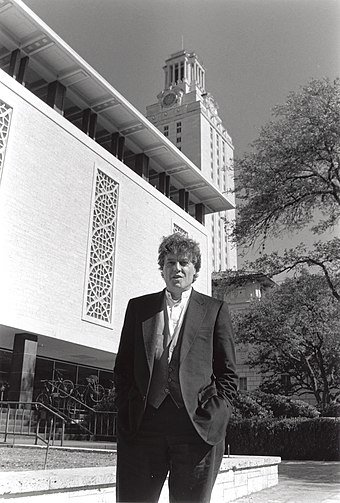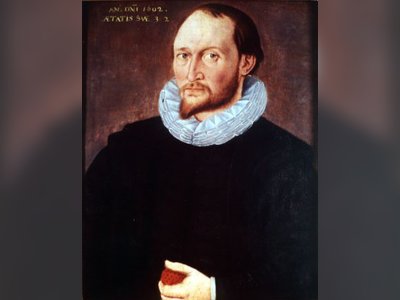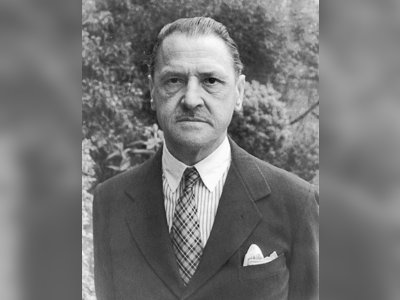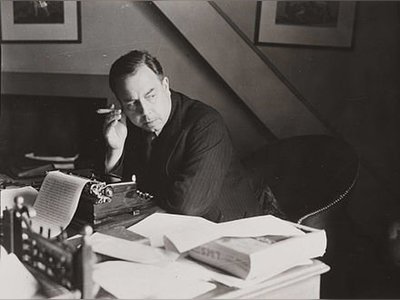British Heritage
Remember, Cherish, Learn.
beta
Tom Stoppard - One of the Most Powerful People in British Culture
Tom Stoppard: A Powerful Contributor to British Heritage.
Sir Tom Stoppard, born Tomáš Sträussler on 3rd July 1937 in Zlín, Czechoslovakia, is a renowned playwright and screenwriter who has left an indelible mark on British culture. His impressive body of work includes contributions to television, radio, film, and the stage, with plays such as "Arcadia," "The Coast of Utopia," "Every Good Boy Deserves Favour," "The Real Thing," "Travesties," "The Invention of Love," and "Rosencrantz and Guildenstern Are Dead." Stoppard's impact on British heritage can be attributed to his prolific writing, theatrical successes, and profound exploration of philosophical and social themes. Let us delve into the legacy, contributions, and success of this literary giant.
Tom Stoppard's legacy in British heritage is marked by his profound impact on the arts and culture of the nation. As one of the most internationally performed dramatists of his generation, he has shaped the landscape of British theatre and earned significant recognition for his work. Stoppard's contributions extend beyond the boundaries of playwriting; he co-wrote screenplays for notable films like "Brazil," "The Russia House," and "Shakespeare in Love," for which he received an Academy Award.
His exploration of themes such as human rights, censorship, and political freedom has added depth and thought-provoking content to British literature. Stoppard's plays often delve into the deeper philosophical aspects of society, challenging audiences to ponder on complex moral dilemmas and societal constructs.
Furthermore, his involvement with various human rights organizations, including Amnesty International, Index on Censorship, and the Committee Against Psychiatric Abuse, showcases his commitment to social justice and freedom of expression. By using his platform to advocate for the rights of political dissidents and marginalized individuals, Stoppard has proven to be not only a talented playwright but also a compassionate and engaged citizen.
Tom Stoppard's success in the world of theatre and cinema has garnered him numerous accolades and awards. He has received an Olivier Award and four Tony Awards for his outstanding contributions to the stage. His plays have achieved critical acclaim, captivating audiences around the globe with their intellectual wit and thought-provoking narratives.
Stoppard's reputation as a literary powerhouse is further solidified by his ranking as number 11 in The Daily Telegraph's list of the "100 most powerful people in British culture." This recognition demonstrates the significant impact he has had on shaping the cultural landscape of the United Kingdom.
Stoppard's journey to becoming a celebrated British playwright was shaped by his turbulent early life. Born into a non-observant Jewish family in Czechoslovakia, he experienced the horrors of World War II and the imminent threat of Nazi occupation. Fleeing the advancing forces, Stoppard's family sought refuge in Singapore, where his father tragically perished during the war.
After further travels and a period of education in India, Stoppard and his family settled in Britain in 1946. Here, he attended schools in Nottingham and Yorkshire, eventually embracing journalism as his career path. His experiences as a journalist and drama critic laid the foundation for his future endeavors in playwriting.
Stoppard's theatrical style is often characterized by its intellectual depth, wordplay, and thought-provoking themes. "Rosencrantz and Guildenstern Are Dead," his breakthrough work, exemplifies this approach by presenting a different perspective on Shakespeare's "Hamlet" through existential themes and language play.
Throughout his career, Stoppard's plays have evolved to encompass a broader range of human experiences, moving away from purely intellectual exercises to emotionally resonant narratives. Works like "The Real Thing" and "The Invention of Love" delve into the complexities of relationships and passion.
In his personal life, Tom Stoppard has been married three times and is the father of four sons. He has experienced personal loss, including the deaths of his parents, and grappled with discovering the fate of his grandparents, who tragically perished in concentration camps during the Holocaust.
Stoppard's political views have evolved over time, with early inclinations towards conservatism and later identifying as a "timid libertarian." His commitment to human rights and social justice issues has played a significant role in shaping his later works.
Sir Tom Stoppard's contributions to British heritage are immeasurable. His impressive body of work, exploration of complex themes, and dedication to human rights have firmly established him as one of the most influential figures in British culture. As audiences continue to engage with his plays and films, Stoppard's impact on the world of literature and theater will undoubtedly endure for generations to come.
Legacy and Contributions to British Heritage
Tom Stoppard's legacy in British heritage is marked by his profound impact on the arts and culture of the nation. As one of the most internationally performed dramatists of his generation, he has shaped the landscape of British theatre and earned significant recognition for his work. Stoppard's contributions extend beyond the boundaries of playwriting; he co-wrote screenplays for notable films like "Brazil," "The Russia House," and "Shakespeare in Love," for which he received an Academy Award.
His exploration of themes such as human rights, censorship, and political freedom has added depth and thought-provoking content to British literature. Stoppard's plays often delve into the deeper philosophical aspects of society, challenging audiences to ponder on complex moral dilemmas and societal constructs.
Furthermore, his involvement with various human rights organizations, including Amnesty International, Index on Censorship, and the Committee Against Psychiatric Abuse, showcases his commitment to social justice and freedom of expression. By using his platform to advocate for the rights of political dissidents and marginalized individuals, Stoppard has proven to be not only a talented playwright but also a compassionate and engaged citizen.
Success and Recognition
Tom Stoppard's success in the world of theatre and cinema has garnered him numerous accolades and awards. He has received an Olivier Award and four Tony Awards for his outstanding contributions to the stage. His plays have achieved critical acclaim, captivating audiences around the globe with their intellectual wit and thought-provoking narratives.
Stoppard's reputation as a literary powerhouse is further solidified by his ranking as number 11 in The Daily Telegraph's list of the "100 most powerful people in British culture." This recognition demonstrates the significant impact he has had on shaping the cultural landscape of the United Kingdom.
Early Life and Journey to British Culture
Stoppard's journey to becoming a celebrated British playwright was shaped by his turbulent early life. Born into a non-observant Jewish family in Czechoslovakia, he experienced the horrors of World War II and the imminent threat of Nazi occupation. Fleeing the advancing forces, Stoppard's family sought refuge in Singapore, where his father tragically perished during the war.
After further travels and a period of education in India, Stoppard and his family settled in Britain in 1946. Here, he attended schools in Nottingham and Yorkshire, eventually embracing journalism as his career path. His experiences as a journalist and drama critic laid the foundation for his future endeavors in playwriting.
Exploring Themes and Theatrical Style
Stoppard's theatrical style is often characterized by its intellectual depth, wordplay, and thought-provoking themes. "Rosencrantz and Guildenstern Are Dead," his breakthrough work, exemplifies this approach by presenting a different perspective on Shakespeare's "Hamlet" through existential themes and language play.
Throughout his career, Stoppard's plays have evolved to encompass a broader range of human experiences, moving away from purely intellectual exercises to emotionally resonant narratives. Works like "The Real Thing" and "The Invention of Love" delve into the complexities of relationships and passion.
Personal Life and Beliefs
In his personal life, Tom Stoppard has been married three times and is the father of four sons. He has experienced personal loss, including the deaths of his parents, and grappled with discovering the fate of his grandparents, who tragically perished in concentration camps during the Holocaust.
Stoppard's political views have evolved over time, with early inclinations towards conservatism and later identifying as a "timid libertarian." His commitment to human rights and social justice issues has played a significant role in shaping his later works.
Conclusion
Sir Tom Stoppard's contributions to British heritage are immeasurable. His impressive body of work, exploration of complex themes, and dedication to human rights have firmly established him as one of the most influential figures in British culture. As audiences continue to engage with his plays and films, Stoppard's impact on the world of literature and theater will undoubtedly endure for generations to come.
- Tom Stopparden.wikipedia.org







